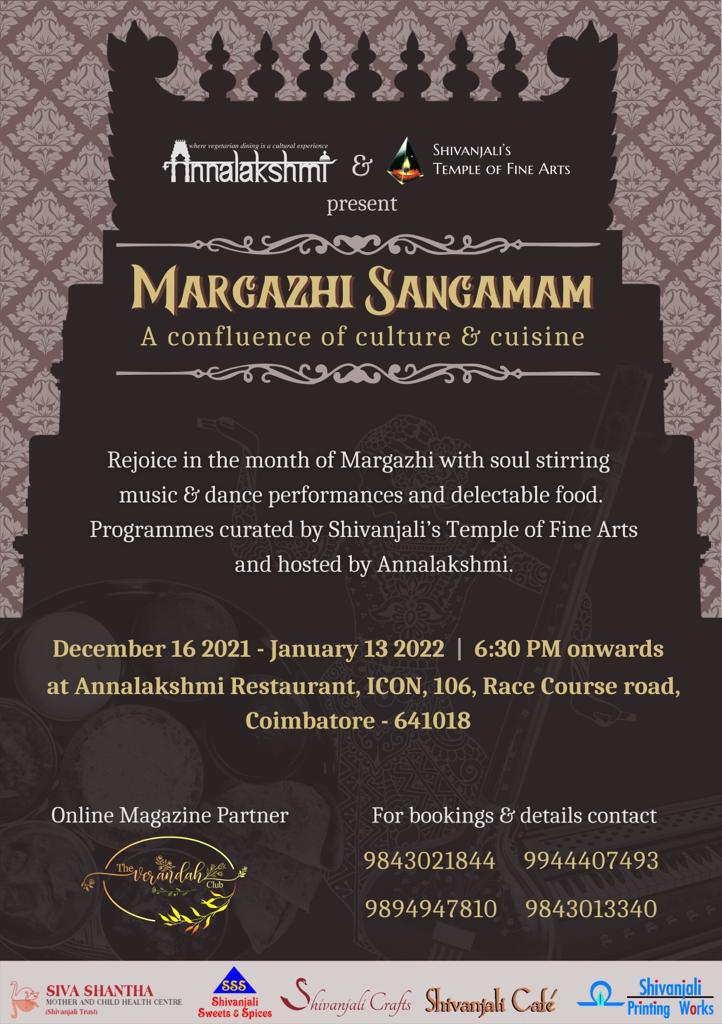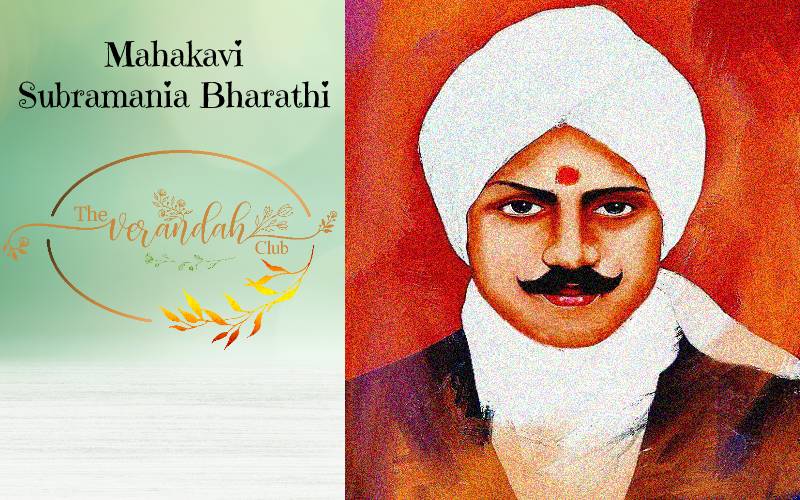Vellai Thamarai – The White Lotus
‘Vellai Thamarai Poovil Iruppaal’ is a winsome song composed by the Maha Kavi Bharathi. Bharathiyar was born on 1882 in a hamlet in Ettayapuram to Chinnaswamy Subramania Iyer and Lakshmi Ammal. His doting parents named him Subramania. He lost his mother at the tender age of five. He was nurtured by his father, who wanted Subramania to articulate in English, excel in Arithmetic, and also had aspirations for him to be an Engineer.
From his early years Subramania was poetically and musically inclined. Poetry was innate in him, and he could write songs, just as a duck takes to water. He was a proficient linguist and was fluent in Tamil, Sanskrit, Hindi, Telugu, English and also dabbled with Arabic.
At the age of eleven, he was conferred the title of Bharathi, the one blessed by Saraswathi (the Goddess of knowledge), by the Raja of Ettayapuram, in appreciation of his adroitness in poetry. At the age of fifteen, he married Chellamma. A year later he lost his father. Although this was a traumatic period in his life, Bharathi pursued his education in Tirunelveli and Varanasi and worked as a journalist with many newspapers.
He was a prolific writer and the myriad of themes covered in his poetry were nature, religion, politics, freedom struggle, social, spiritual and woman’s rights. Bharathi was a champion of women’s rights and his writings also emphasized the same. He declared women as the preservers and propagators of culture. He also felt that women must write the laws and lead the society. Thus, he strongly believed that ‘the hands that rock the cradle should rule the world.’
Bharathi opposed child marriage, dowry system and other social evils and supported, widow remarriage. ‘Penmai Vaazhagavendru,’ ‘Kummiyadi,’ ‘Om Shakthi,’ ‘Nenjukku Needhiyum,’ are a few of his compositions which cascade with themes such as, women empowerment, woman’s rights, liberation and leadership qualities.

Bharathiyar is glorified as a ‘National Poet,’ as he had composed several poems over-brimming with patriotism through which he infused nationalism in people and motivated them to join in the freedom struggle. His writings for the newspaper, ‘India,’ blazed a new trial in Tamil journalism with its motto, ‘Liberty, Equality and Fraternity.’ Since his writings inspired and fueled the freedom movement, a warrant was issued by the British government to arrest him.
He was relocated to Pondicherry to escape the ire of the British government. In 1919, when Bharathiyar came to Madras to meet Gandhiji, he was promptly arrested. Even then, Bharathiyar was undaunted and he offered his valuable suggestions and support and played a pivotal role in the freedom of India.
Due to his deplorable financial conditions, exile periods and the imprisonment hardships, he could not have a robust health. He breathed his last on 12 September 1921. Although it is a century since he left this world, his memory is etched in the hearts of people in the form of his patriotic songs such as, ‘Aaduvomey pallu,’ ‘Achham illai,’ ‘Parukkulley nalla naadu,’ ‘Endru thaniyum.’ He is considered as the iconic man who brought British India to its knees with his pen. He proved the quote “The pen is mightier than the sword.”
Bharathiyar has composed several devotional songs such like, ‘Vellai Thamarai,’ ‘Vellai Kamalathiley,’ ‘Kaakai siraginiley Nandalala.’ ‘Vellai thamarai’ is a Tamil song which is set in the Bhimplas Raagam and Adhi Tala. The raga, Bhimplas, is a Hindustani raga derived from the Kaafi thaat. It is an afternoon raga. It exudes the Bhakti Bhava. It also depicts the Shringara Rasa (Love). This raga is known as Abheri in Carnatic music and Muthuswamy Dhikshitar fondly referred to it as Devagandhari Ragam. The famous Tamil movie songs based on this raga are, ‘Singara velaney devaa’ (Konjum salangai), ‘Gangai karai thottam’ (Vanambadi), ‘Poomalayil oru malligai’ (Ooty varai uravu) and ‘Kannodu kaanbathellam’ (Jeans).

Bharathiyar presents this song in the form of a tribute to Goddess Saraswathi. The uniqueness of this song is that the composer has not mentioned Saraswathi Devi in the song, but has chosen to showcase Her manifestation in all creative fine arts. This song elucidates the innumerous abodes where Saraswathi Devi resides.
The Pallavi (First stanza) portrays Saraswathi Devi seated majestically in a pristine white lotus. Her presence is felt in the melodious sound emanating from the veena. She domiciles in the hearts of great poets, who write poems which give happiness to everyone.
In the Anupallavi (Second stanza), she is limned as the one who shimmers in the chanting of Vedas, when recited by devotees who are aware of the true interpretation of the Vedas. She is the in-depth meaning of the merciful words uttered by sages, who are untainted by deceit.
The Devi gleefully inhabits in the songs sung by women with honey sweet voices. She reposes in the babble of babies. She also nestles in the tongue of the parrot.
This composition was sung for the Tamil Movie, ‘Thaai Ullam’ (1952), by the distinguished singer, M. L. Vasanthakumari (MLV), the recipient of the prestigious, Padma Bhushan Award. This Saraswathi vandhanam (Invocation of Saraswathi) is sung in concerts by many renowned singers as it is well-received by the audience. The rasikas are able to behold Saraswathi Devi in all Her multifarious destinations and feel Her omnipresence.

Yamuna is a resident of Coimbatore and is pursuing Hindustani vocal music under the tutelage of Shri Kedar Karatji. She also teaches bhajans and conducts English Grammar classes for school children. Her other passions are writing travelogues, playing keyboard, gardening, going on pilgrimages and exploring & enriching her knowledge through travel.
NEXT ARTICLE